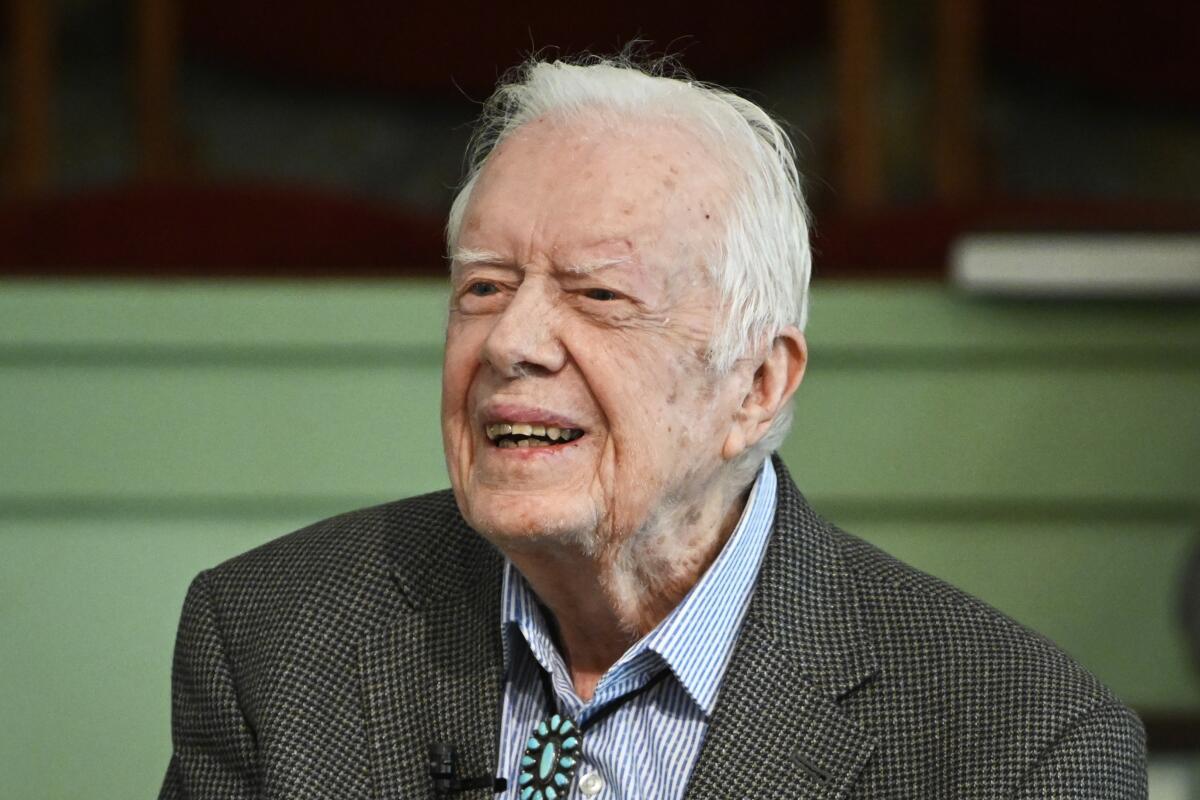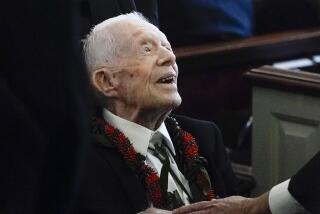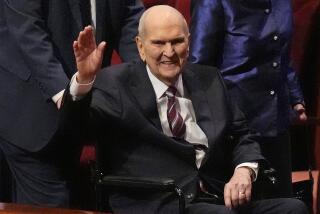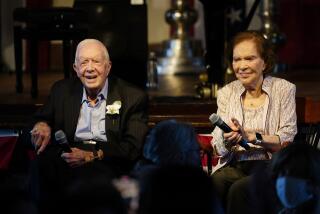President Jimmy Carter turns 96

ATLANTA — President Jimmy Carter marks his 96th birthday Thursday, the latest milestone for the longest-lived of the 44 men to hold the highest office in the land.
Carter planned to celebrate at his home in Plains, Ga., with his wife of 74 years, Rosalynn Carter, according to a spokeswoman for the Carter Center in Atlanta.
The 39th president, in office from 1977 to 1981, has largely receded from public view amid the COVID-19 pandemic and his own health challenges from a series of falls in 2019. He previously survived a dire cancer diagnosis in 2015. Yet Carter remains a quiet force in politics at home and, through his post-presidential center, in public health and human rights advocacy around the world.
Carter on Tuesday endorsed his fellow Democrat, the Rev. Raphael Warnock, in one of two competitive Georgia U.S. Senate races this fall. Carter’s announcement aligned him with another former president, Barack Obama, and other party power brokers in backing Warnock over Democrat Matt Lieberman, whose father was the party’s 2000 nominee for vice president.
Although Carter remained neutral in this year’s Democratic presidential primary, he fielded calls and visits from multiple candidates. He and his wife recorded audio addresses for the Democratic National Convention urging the election of nominee Joe Biden, who was a young senator from Delaware when Carter won the presidency in 1976.
“Joe Biden was my first and most effective supporter in the Senate,” Carter told the convention. “For decades, he’s been my loyal and dedicated friend.”
A new documentary, “Jimmy Carter: Rock & Roll President,” examines the former POTUS’ relationships with icons such as Willie Nelson, Bob Dylan and Gregg Allman.
Carter also gained new attention recently upon the death of Supreme Court Justice Ruth Bader Ginsburg. Carter is the only president since 1850 not to make a single Supreme Court nomination, but he reshaped the lower courts with a record number of nominations of women and nonwhite jurists, Ginsburg being the most notable.
In 1980, Carter tapped Ginsburg, then the nation’s most accomplished civil rights attorney, for the U.S. Court of Appeals for the D.C. Circuit, considered the nation’s second-highest court. She was the second woman Carter nominated for the D.C. Circuit, setting her up for a promotion to the Supreme Court 13 years later by President Clinton.
“He looked around at the federal judiciary and he said, ‘You all look like me, but that’s not how the great United States looks,’” Ginsburg said to a Fordham University Law School forum in 2016.
Also notable this year was the Carter Center’s designation, for the first time, of the U.S. as a “backsliding” democracy. The center announced after the Democratic convention that it would devote resources to ensuring free and fair U.S. elections this fall. The Carters founded the center in 1982, two years after he lost his reelection bid to Ronald Reagan.
Explaining the decision to monitor a U.S. election, a Carter Center statement said backsliding democracies were “often characterized by polarization, a lack of public trust, ethnic or racial divisions and injustice, and fears that election results won’t be seen as credible or could trigger violence.”
More to Read
Sign up for Essential California
The most important California stories and recommendations in your inbox every morning.
You may occasionally receive promotional content from the Los Angeles Times.










